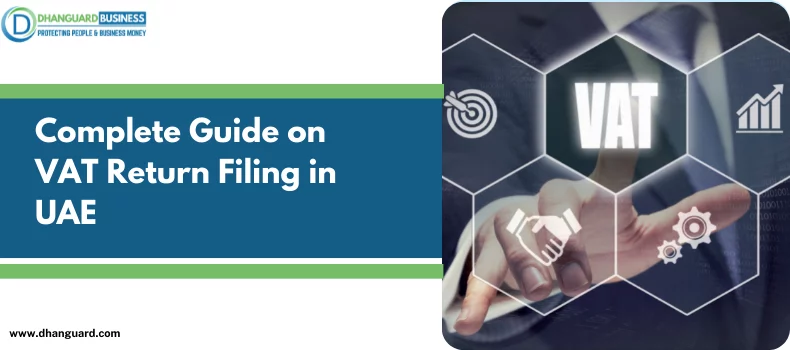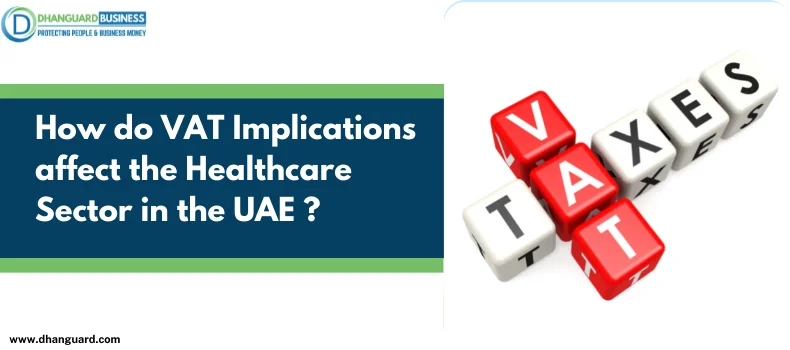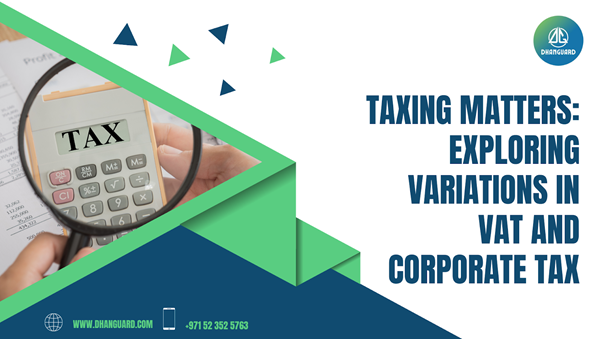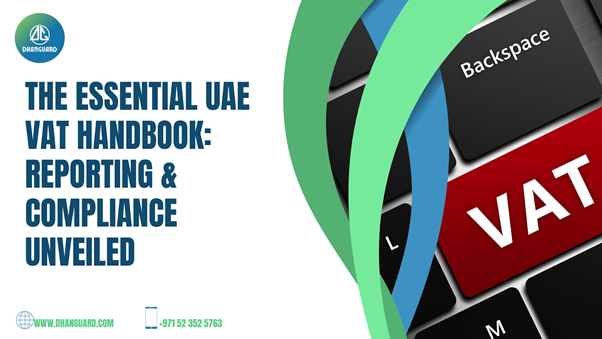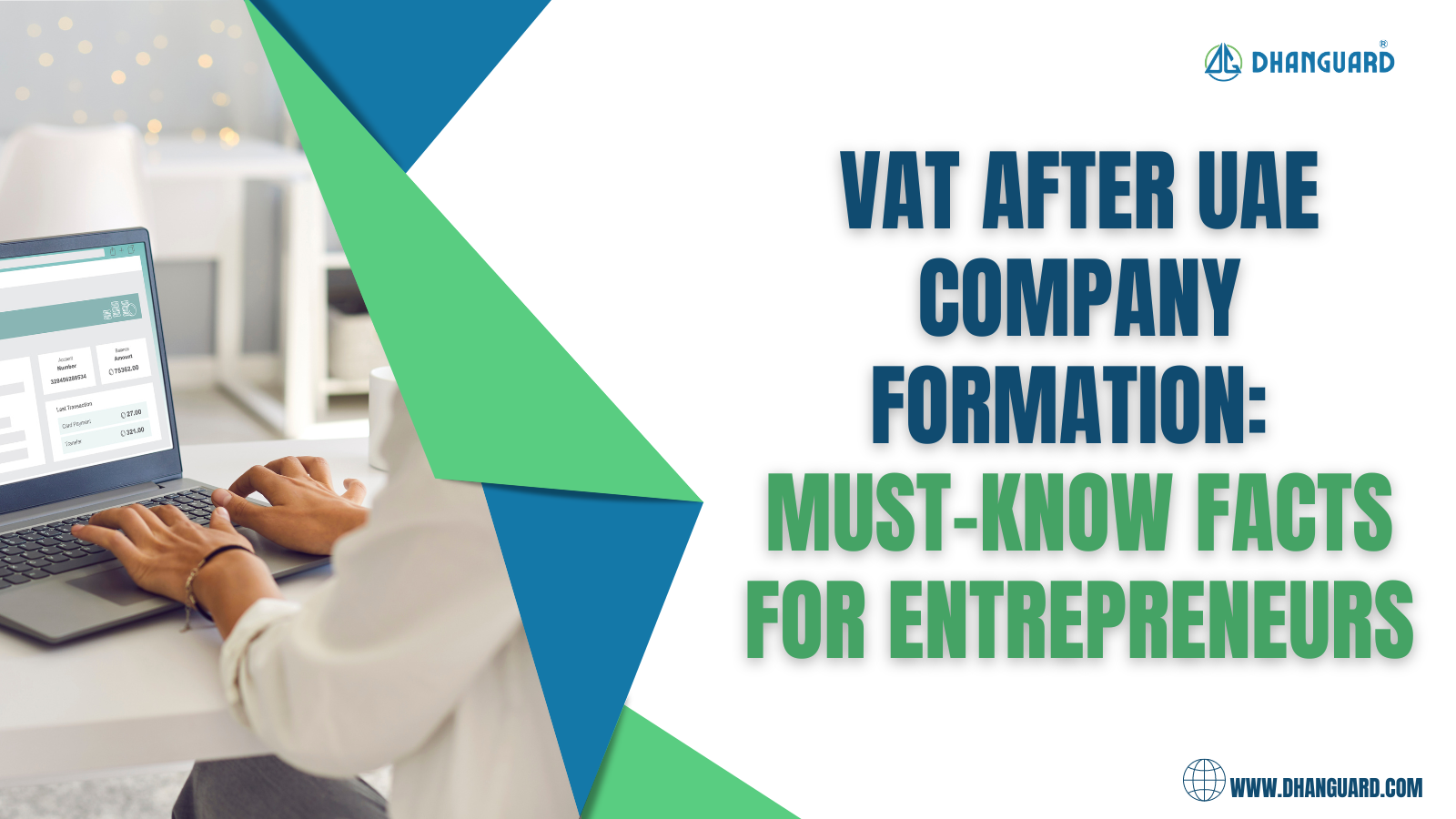Like all businesses operating in Dubai, filing a VAT return is obligatory. Value Added Tax (VAT) is a consumption tax placed on a product or commodity. At several phases of the supply chain, it is added. From the time of manufacture through the point of sale, value is added. Currently, in 180 countries throughout the world, it is also known as indirect tax. When it comes to VAT, the end customer is responsible for paying the tax.
In this blog, we are going to learn about everything about VAT Return Filing in the UAE.
What is VAT?
In 2018, the UAE implemented a value-added tax. In the United Arab Emirates, a 5% VAT charge is applied. VAT is a source of revenue for the government of the United Arab Emirates. This money is utilized by the government to improve the services it provides to UAE citizens. One of the key differences between VAT and income tax is that VAT is entirely dependent on consumer consumption. Regardless of income, the consumer is required to pay VAT. A taxable person or a business must file VAT returns as recommended by the Federal Tax Authority under UAE legislation.
Criteria for VAT Registration in the UAE
All businesses in the UAE are required to register for VAT based on taxable supplies and imports. They're all listed below:-
- VAT registration is required for businesses that earn more than AED 375,000 in taxable supply and imports;
- VAT registration is optional for enterprises with taxable supplies and imports totaling more than AED 187,500.
Each consumer who buys a goods or service gets taxed on the VAT amount. The taxable VAT amount is subsequently paid to the government by the firm. In Dubai and the UAE, all VAT registrants must file a VAT return, regardless of the type of sales, purchases, VAT registration, output tax, input tax, and so on. The government will repay the VAT paid by the company to the supplier.
How is VAT collected?
Value Added Tax is collected by VAT-registered enterprises on behalf of the government; consumers pay the VAT through a 5% increase in the cost of taxable products and services purchased in the UAE.
For tax-registered firms in the UAE, VAT is charged at a rate of 5% on taxable deliveries of goods or services at each step of the supply chain. Tourists in the United Arab Emirates are also required to pay VAT while making purchases.
Read More:- How does VAT Works in UAE?
How to File VAT Return?
Here’s is the some following points on filing a return for VAT:-
- A VAT-registered business is required to file VAT returns within a certain time frame after the end of a tax period. In the United Arab Emirates, VAT return filing refers to the amount of VAT that must be paid or refunded by the tax authorities.
- The VAT return provides an estimate of a company's total supplies and purchases for a certain tax period. A business's VAT liability is also represented by the VAT return. The VAT is levied on supply and purchases for a set length of time, and the difference between the two is the business's VAT liability.
- The VAT return form is available on the Free Trade Agreement’s (FTA) official website. If your company meets the VAT return requirements, you can fill out the return form on the FTA website. The VAT Return Filing Form is Form VAT 201.
- The sum of the tax to be paid is set for a specific time period, which is referred to as the tax period. The tax period is determined by the company's annual income. For yearly revenue of less than AED 150 million, the tax period is "quarterly." For yearly revenue of AED 150 million or above, the tax period is "monthly." As advised by the FTA, the taxable person must file the VAT return within 28 days of the end of the tax period.
- The FTA has the right to change the tax period based on the type of business. Companies must file VAT returns in the UAE on a regular basis, according to FTA legislation, and they must do it within the specified timeline.
- If a taxable business fails to provide returns within the specified time frame, it is subject to a penalty under the law.
Implications of VAT
VAT Implications can be apply on the following:-

Impact of VAT on Individuals
The bulk of goods and service transactions will be subject to VAT, which is a general consumption tax. Exemptions may be given in a restricted number of cases.
As a result, the cost of living is likely to rise significantly. However, this will depend on a person's lifestyle and spending habits. If a person spends mostly on items that are exempt from VAT, he is unlikely to observe a big increase in his spending.
The government plans to enact regulations requiring firms to disclose how much VAT a person must pay for each transaction. Individuals can select whether or not to acquire something based on this knowledge.
Impact of VAT on Businesses
Businesses will be responsible for their accurate records of revenue, expenses, and VAT charges.
Registered firms and traders will charge VAT at the current rate to all of their customers and will incur VAT on products and services purchased from suppliers. The difference in these amounts is either reclaimed or paid to the government.
How Can Dhanguard Help You?
Dhanguard consultants in Dubai will assist your business in accomplishing the following tasks.
- We will file your VAT returns on your behalf in strict accordance with UAE VAT legislation.
- Assistance with the smallest possible tax liability while adhering to all regulations.
- All VAT-related processes and procedures are handled with complete support and direction.
- In all of our commercial endeavors, including the filing of VAT returns, we are punctual and prompt. You don't have to be concerned about the deadlines or tax periods that have been set.
If you are a business owner in the UAE looking for VAT Services, contact Dhanguard for outstanding VAT and other accounting procedures.
Conclusion
The introduction of the new VAT system has transformed the business world. VAT varies from GST in that it affects the total size, cost, and procurement of a business's supply chain. It requires a complete redesign of any company's current financial, accounting, and IT systems.
Dhanguard has experienced experts that can help you with all areas of VAT Filing Return in Dubai and other emirates of UAE.
DhanGuard: All-in-One Solution for Business Setup in Dubai, UAE
DhanGuard is your ultimate one-stop solution for all your business needs. Whether you’re planning to set up a new company or expand your existing business in the UAE, we’ve got you covered with our comprehensive range of services. From Business Setup in UAE and Company Formation in Dubai to managing your financial and legal compliance, we provide everything you need under one roof.
Our services include:
- Company Formation in UAE and Dubai
- Opening a Business Bank Account in UAE and Dubai with a 99% success rate
- VAT & Corporate Tax Compliance
- Accounting, Bookkeeping, and Auditing Services
- Trade License Renewal
- Golden Visa Assistance
Let DhanGuard make your journey of Business Setup in Dubai seamless and hassle-free!

